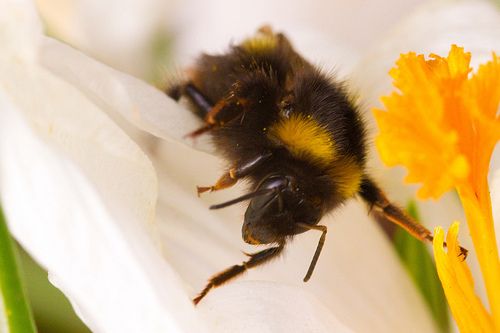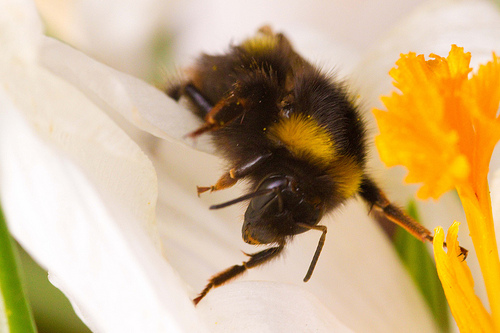Bee decline linked to climate change
A new report by the United Nation’s Environment Programme found many factors lead to the decline in bee populations and those of other pollinators. Climate change and people’s actions act as a catalyst towards this decline. The decline of bees is the first sign in a more worrying trend, according to the report.

 The effects of climate change – changes in flowering times of plants and shifting rainfall patterns – could be a catalyst in the decline of bee populations, according to a new United Nation’s Environment Programme (UNEP) Report.
The effects of climate change – changes in flowering times of plants and shifting rainfall patterns – could be a catalyst in the decline of bee populations, according to a new United Nation’s Environment Programme (UNEP) Report.
The study on global bee populations brings together the latest science on the collapsing bee colonies and highlighted the ‘multi-trillion dollar services’ that nature and bees provide humans. It found that bees are early indicators of wider impacts on animal and plant life and that measures to boost pollinators could not only improve food security but the fate of many other important species.
Achim Steiner, UN Under-Secretary General and UNEP Executive Director said: “Human beings have fabricated the illusion that in the 21st Century they have the technological prowess to be independent of nature. Bees underline the reality that we are more, not less dependant on nature’s services in a world of close to seven billion people.”
The study found more than a dozen factors, from declines in flowering plants, the use of memory-damaging insecticides and the worldwide spread of pest and air pollution – all effecting the bee populations.
New kinds of virulent fungal pathogens – which can be deadly to bees and other key pollinating insects – are now being detected worldwide, as a result of shipments linked to globalisation and international trade.
Human influence is blamed for their continuing decline. Dr Peter Neumann, of the Swiss Bee Research Centre and lead researcher in the report said: “The transformation of the countryside and rural areas in the past half century or so has triggered a decline in wild-living bees and other pollinators.”
Increasing amounts of chemicals used in agriculture have also been found to be damaging to bee populations, and some, in combination – known as the ‘cocktail effect’ – be even more potent.
The report authors call for incentives for farmers and landowners who restore pollinator-friendly habitats and including key flowering plants in their crop fields. They say more care needs to be taken in the choice, timing and application of insecticides.
As plans are underway for the gathering of nations in Rio de Janeiro, in efforts to achieve sustainable development, the report highlights the need for focus to be put on investing and re-investing in the world’s natural resources.
Steiner said: “Rio+20 is an opportunity to move beyond narrow definitions of wealth and to bring the often invisible, multi-trillion dollar services of nature – including pollination from insects such as bees – into national and global accounts.
“It is time to widen and embed this work across the global economy in order to tip the scales in favour of management rather than mining of the natural world and that includes the services of pollinators.”
Image: Holly Occhipinti | flickr




